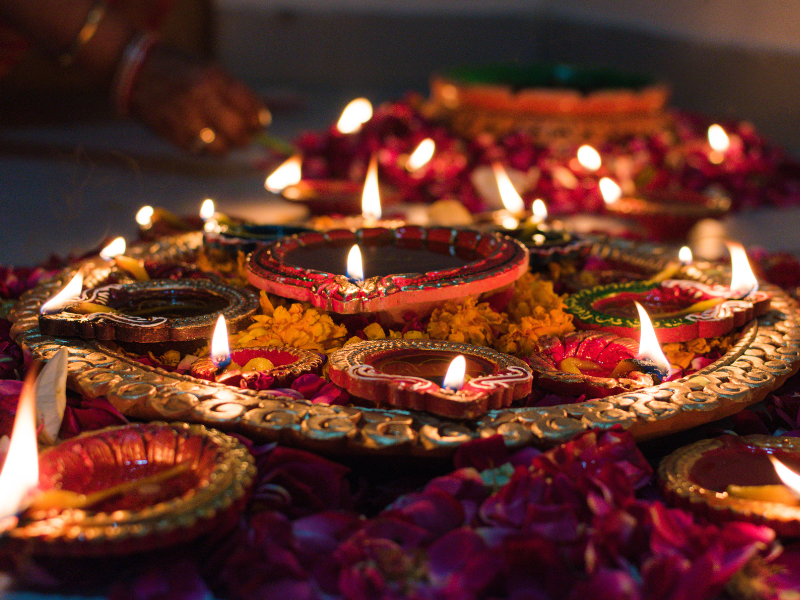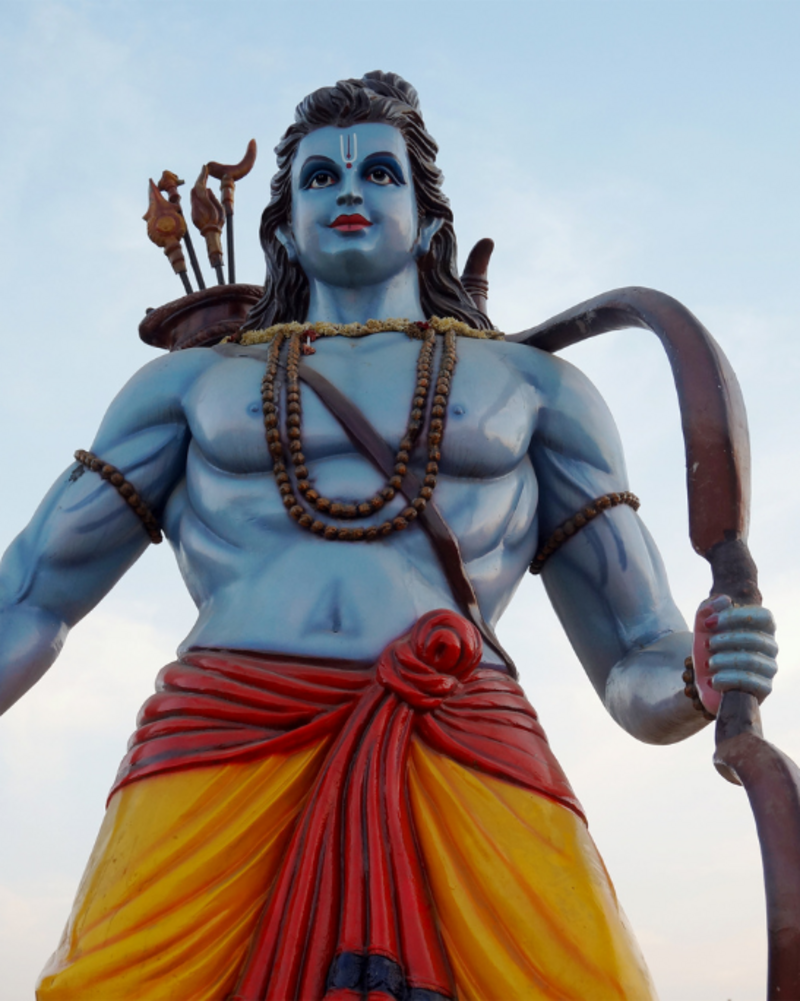Diwali: Understanding the Impact of the Festival of Lights on Business in India
Between light, prosperity, and renewal, Diwali shapes India's economic and professional rhythm every year.

Every fall, India lights up with thousands of oil lamps and colorful garlands to celebrate Diwali, the festival of lights. This major spiritual event, observed by millions of Indians, transcends the religious sphere: it has a considerable impact on the country's social, economic, and professional life. For companies operating in India or working with Indian partners, understanding the significance and implications of Diwali is essential to better anticipate this strategic period and strengthen business relationships.
Diwali, spirituality and prosperity

Diwali has its origins in the Indian epic Ramayana, marking the triumphant return of King Rama, avatar of the god Vishnu, to his capital of Ayodhya after his victory over the demon Ravana following several years of forced exile. In another tradition, this major calendar festival is linked to the goddess Lakshmi, the embodiment of wealth, abundance, prosperity, and good fortune, who visits illuminated homes to bestow her blessings. In all its forms, Diwali represents the victory of light over darkness, good over evil, and hope over despair.
But this festival is not only spiritual: it is also associated with the world of commerce and business. In many parts of India, Diwali marks the start of the new fiscal year. Merchants close their accounts, open a new ledger, and pray for a prosperous year ahead. This aspect explains why Diwali is sometimes called “the festival of merchants”: it embodies a time of economic renewal, risk-taking, and confidence in the future.
A festival with many faces depending on the region
Diwali is not celebrated in the same way across India, and its richness also lies in its diversity:
- In northern India, the festival is mainly associated with the story of Rama and his victorious return. Towns and villages are lit up with oil lamps (diyas) placed in windows and courtyards.
- In the west, particularly in Gujarat, the focus is on Lakshmi and commercial practices. Accounts are closed, and religious ceremonies (pujas) are held in offices and stores to attract prosperity.
- In southern India, its meaning differs. Some regions celebrate the victory of Krishna, another avatar of the god Vishnu, over the demon Narakasura, highlighting liberation from the forces of evil.
- For Sikhs, Diwali coincides with Bandi Chhor Divas, commemorating the liberation of Guru Hargobind, one of the great historical spiritual leaders of this indigenous Indian religion.
- The Jain religious tradition sees this event as an opportunity to commemorate the attainment of salvation (moksha) by its greatest master, Mahavira.
This intersection of religious calendars shows how Diwali transcends religious boundaries to become a truly national and inclusive holiday, shared by a large part of Indian society.
A key period for professional relationships
Like Christmas in the Western world, Diwali transcends religion to become a pivotal moment in Indian community life. In fact, the values of prosperity, gratitude, generosity, and solidarity embodied by this major holiday also permeate the world of work.
Many companies take advantage of this event to thank their employees and partners by offering gifts, bonuses, or symbolic rewards. It is common to exchange sweets, gourmet baskets, or decorative items as a way of strengthening cohesion and loyalty within the groups concerned. In both the private and public sectors, Diwali is also a good time to launch new projects, sign contracts, or plan future collaborations, as starting an activity under the auspices of Lakshmi is considered a very good omen.

Finally, Diwali is a deeply family-oriented holiday. It is accompanied by public holidays, which are opportunities for family gatherings that give rise to all kinds of gift exchanges. But it is also synonymous with returning to one's roots and traveling to the places of origin of one's ancestors. This is why, in the professional world, after a few days of intense commercial activity linked to preparations for the festival, this key moment in the ritual calendar is followed by a significant drop in economic activity and a slowdown in the business world. By ignoring the specificities of the local calendar, a foreign partner could lose the respect of their Indian partners.
Concrete impact on business in India
For foreign companies and professionals, Diwali has several practical and cultural implications:
- Business calendar: The days leading up to Diwali are extremely busy, but offices close for several days for the festivities. It is advisable to take this seasonal aspect of the business calendar into account and avoid scheduling important meetings or negotiations during this period.
- Corporate gifts: Giving a symbolic gift is a widespread and appreciated practice. Indian pastries (mithais), gourmet baskets, and decorative items will strengthen bonds of trust.
- Commercial aspects: Diwali is by far the biggest shopping season in India. Retail, e-commerce, automotive, and real estate all see peak sales during this period. With this in mind, companies ramp up their marketing campaigns and promotions to capture consumers' attention.
- Favorable symbolism: Signing a contract or launching a project just before or after Diwali is seen as a good omen, heralding future success.
Intercultural tips for professionals
To make the most of this period and strengthen your relationships with your Indian partners:
- Plan your interactions: avoid tight deadlines around Diwali and take Indian holidays into account.
- Express your wishes: a simple message or greeting card for Diwali will be very well received. The phrase “happy Diwali” is de rigueur.
- Make a symbolic gesture: a small gift appropriate to Indian culture will help strengthen the relationship (sweets, pastries, small handicrafts, etc.).
- Emphasize the symbolic dimension: if the opportunity arises, initiate or conclude a project related to Diwali to reap the benefits of its symbolic value.
Diwali is not just the festival of lights: it is also the business New Year in India. It is a period marked by prosperity, gratitude, and renewal, which profoundly influences professional behavior and the economic calendar. By taking these cultural specificities into account, foreign companies will gain credibility, strengthen their partnerships, and be able to take advantage of this unique moment in the Indian calendar.
